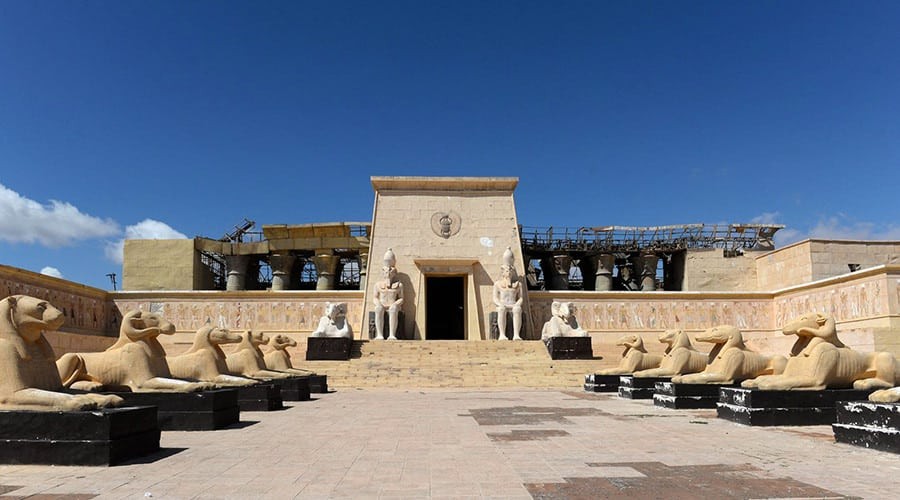
Morocco and Cinema A promising story
Morocco encountered cinema very early. Following their historic premiere in Paris, the Lumiere brothers sent out operatives to scour the globe for “exotic” and “wonderful” images. Morocco was the ideal location, different and close. By the beginning of the 20th century screenings started being organised throughout the country, and the first movie theatre was built in Fez.
With the beginning of the Protectorate in 1912, and under the impulse of French Marshal Lyautey, the creation of a local cinema production company was encouraged, and the first feature film recorded on Moroccan soil was completed in 1919. It was Mektoub by Jean Pinchon and Daniel Quintin. This film opened the way for the “colonial” film genre. This genre produced many legendary titles such as Itto and The Seventh Door, and emblematic figures like Andre Zwobada. It led to the production of a larger number of international films in Morocco and to the creation of two key organizations that would later play a fundamental role in Moroccan cinema: the CCM (Moroccan Cinematic Centre) and the Souissi Film Studios (1944).
Moroccans were soon lovers of the new form of entertainment and flocked to the Egyptian films of the era for both cultural and political reasons. The number of movie theatres started to grow in the main urban centres.
Once national sovereignty was restored in 1956, the government, through the CCM, encouraged a significant number of short film productions. Young filmmakers fresh out of the prestigious cinema school IDHEC were put to the test, and Moroccan cinema saw its golden age in particular for short film documentaries.
Soon thereafter, Mohammed Ousfour, a self-taught cinema enthusiast presented his film, Le fils Maudit, hailed by some as the first feature film created by a Moroccan. Hard-core cinema lovers however maintain that the film Wechma (Trace, 1970) by Hamid Bennani was the first true Moroccan film starting the fashion for auteur cinema.
With the arrival of government aid for cinema production in the 80s, Moroccan cinema saw a new resurgence. Production boomed between 1982 and 1984 and led to the creation of the National Film Festival of Rabat in 1982. This change was responsible for an improvement in Moroccan cinema’s image, which was further strengthened by new ways of getting financial support for cinematic productions.
After the reign of Egyptian cinema in the hearts and minds of the Moroccan public, home grown cinema finally began making its mark. Love in Casablanca (Abdelkader Lagtaâ, 1991) and Looking for my Wife’s Husband (Mohamed Abderrahman Tazi, 1993) are both unforgettable films from the early 90s. This decade also saw the opening up of the profession, with young film makers from the Moroccan diaspora establishing themselves starting in the mid 90s and going right into the 2000s (Ismail Ferroukhi, Nour-Eddine Lakhmari, Nabil Ayouch, Hassan Lagzouli…).
Public enthusiasm, political measures and administrative incentives, such as advances on receipts with an annual budget of 60 million Dirhams, and help with screenwriting, all logically led to the creation of the Marrakesh International Film Festival, a national annual cinema festival. Moroccan cinema has finally established itself in its own right: regular, ever increasing, home grown productions (average of 25 features films a year), national recognition (with Moroccan films taking the top spots at the Box Office) as well as international recognition (from Moscow to Buenos Aires, Moroccan movie makers are invited everywhere). Observers appreciate in particular the inter-generational, thematic and artistic diversity which typifies this cinema. It is a cinema mature enough to get closer to the main issues which permeate Moroccan society, even if that sometimes leads to controversy and debate (Marock, Casanegra….).
With the increasing number of cinema schools and the soaring demand for training from young people’s desire to take part in this dynamic industry, the Marrakesh Film Festival created the Cinécoles competition. It has since become a spring board for aspiring talent.
Morocco’s cinema history is long and has experienced its ups and downs. The Industry overall is at an all-time high so now it is necessary to consider how to combat a major issue: the ever growing number of movie theatres facing closure.
source: Morocco world news
